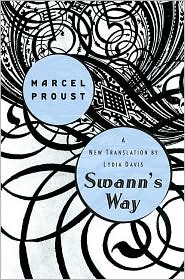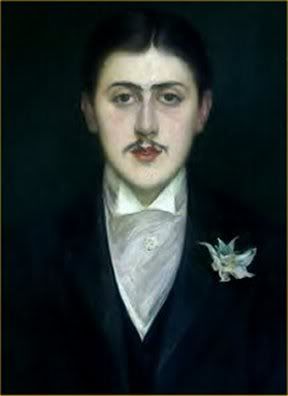As Christmas draws near, and the dark cold evenings become longer, a number of people will have a foreboding about being alone, creating a sense of loneliness. Is loneliness something to anticipate with anxiety? Or even fear? Should we avoid being on our own, and seek out companionship? On the contrary, I will argue that approaching loneliness and giving it focal time can enhance your wellbeing.
Loneliness has many faces. Sociologists distinguish two types: social loneliness, missing relationships with friends and family; and emotional loneliness, the missing of an intimate relationship, like a partner. Anthropologists have also observed other types of loneliness, such as existential loneliness, the feeling of being lost in the world. In practice, social workers and health care professionals tend to view loneliness as a condition, to be countered or cured. Although there are therapies for loneliness as a condition, they seldom are sustaining in the long term. They view loneliness as an aberration that needs to be treated, and not as a transient part of life.
Being alone has its advantages, offering time for reflection on your life, including the people within it, and most poignantly, those people whom you miss. It offers time to take distance and renew oneself, to step aside from the hectic, running pace of daily life and pause, to have time to yourself, time to muse, digest and cherish more deeply the thoughts and memories that surface, and to view your life with a different perspective.
The French novelist Patrick Modiano, the winner of this year’s Nobel Prize in Literature, has sketched out the beauty of being alone in many of his books. Loneliness is a recurring theme in his oeuvre, where protagonists spend more time in their thoughts and memories than in physical action. His characters wander often alone, approaching their loneliness and longing for other people they have met and with whom they have shared meaningful experiences as balanced parts of life, reflecting and offering positive and negative feelings, not as a condition to be avoided, or feared.
Modiano is often called the heir of the French novelist Marcel Proust, who wrote his magnum opus In Search of Lost Time a century ago. Although the books of Modiano and Proust are very different, they share similarities of theme and attitudes about the appreciation of involuntary memories, which offer their protagonists new insights and perspectives on the situations they are experiencing. These memories are often evoked by the passing impressions of a sound, a visual image, taste, and most of all by scents.
Of all the senses, the sense of smell is the most capable of evoking intense emotional memories. Psychological and neurological studies have shown that memories triggered by scents are more emotional and evocative than those elicited by images or sounds, although there are little differences in the level of detail or vividness of the memories.
The involuntary nature of these scent memories means that they become difficult to control; a scent may pass by you and suddenly intense childhood memories are evoked. In this situation, the best response is to be open, to be aware of your environment and not to close yourself off to the scents that are spinning about the air amid your daily wanderings. The protagonists in the books by Modiano and Proust are often alone or absentminded in a crowd or society when, by chance opportunity, they encounter their best memories.
Besides being involuntary, the scents that evoke special memories are personal and situational, and as they layer and fuse become ‘autobiographical perfumes’, as I have coined them. Everybody can have several autobiographical perfumes that evoke these memories, and for each person, they are different. For one, an autobiographical perfume may be the scent of a special variety of fresh baked cookies, while for another it may be the scents of a church interior. People share common scents as well, especially when they are of the same generation or region and they have encountered the same kind of typical smells in their childhood. Think of the smell of local food, pastry, herbs, and spices; scents attached to familiar landscape and spaces, such as farmland and forest, bars and churches; and each of these experiences enhanced, amplified, and extended by new scents indicative of the holiday season.
And so I present to you the idea of a ‘perfume for loneliness’. This is not a perfume, comprised of chemical or natural extracts, or a medicine as one might expect, against loneliness. It is not a formula that works for all, and is not available to purchase in a shop. It is a perfume for you, personally to discover and create for yourself.
Begin by exploring what kind of scents trigger childhood memories for you. Gather these scents physically, and compose your own personal autobiographical perfume. When you are alone, in a time of reflection, consciously inhale these scents. They will create space to facilitate you to approach and understand your personal feelings of loneliness better. They will evoke special memories that, just like opening a gate, can lead you to deeper reflection on your life, and a richer understanding of the people who are absent and missed. As you inhale, be comforted by this sensory experience, and be at peace with the knowledge that loneliness is not a feeling to avoid or fear.
Headline image credit: Ocean view. CC0 via Pixabay.
The post A perfume for loneliness appeared first on OUPblog.

Haven't yet picked up a box of chocolates or a dozen roses. Here are some Valentine's Day suggestions for the special bookish person in your life.
Haven't yet picked up a box of chocolates or a dozen roses. Here are some Valentine's Day suggestions for the special bookish person in your life.
After procrastinating for years, I'm finally reading Proust in French: Du cote de chez Swann, (Swann's Way) the first book of Remembrance of Times Past - the one in which the famous madeleine is dipped into tea to bring back a flood of memories, almost reliving, of his childhood. It's not an action book, to put it mildly. It's a rich and sensuous book, about sensuous experiences - including reading. It swept me back into remembering the way I read as a child, with such total, visceral immersion that I still associate different smells or tastes, as well sounds or images, with different books.
And some of the reason that I'm identifying so profoundly, or stopping to smile and savor the beauty of a phrase (despite being occasionally overwhelmed by the length of a sentence) is because I'm reading slowly.
I learned to read and write in French before English, but that was a long time ago. Reading something as dense as Proust,with paragraphs that may extend for a couple of pages of small print,and occasional words that aren't in my dictionary,needs concentration. There's no point in bolting through it to find out what happens, because not very much does. The point is in the reading itself.
And that reminds me why I write, as well as why I read: the passion of totally immersing myself in another world, and being lost in the music of the words that take me there. I'll try to remember that when I start Caleb's Crossing for book group, instead of gulping it down in a couple of evenings,rushing to finish in time as I'm often guilty of doing.
It is really odd for me to think of Wharton and Proust being contemporaries. As Emily commented recently, Wharton seems like such an old-fashioned writer when compared to the modernists who were making it big in the early part of the 20th century. I have to say I agree. For all that Wharton struggled to not be associated with her parents’ generation and their fossilized values, Wharton herself wasn’t exactly a revolutionary or anywhere near to being a bohemian. Though her perspective and voice is original, the construction of her novels is traditional.
Wharton and Proust both lived in the Faubourg in Paris at the same time and knew many of the same people. And yet they never met. The reason they never met is all on Wharton’s side. She purposely avoided Proust because she thought he was a snob. This from a woman who herself had frequently been accused of being a snob and sometimes by the people who knew her most intimately. The thought just cracks me up.
Wharton read each volume of À la recherche as they were published and reread them several times and marked them up extensively. She also owned and read Proust’s books of essays and stories. She admired Proust’s writing even though she didn’t like all the sex.
During the French translation of Wharton’s The Custom of the Country, the translator, Robert d’Humières, was killed in action in 1916. It was suggested that Proust might finish the translation. Unfortunately, nothing ever came of it. Years later, Proust translator Scott Moncrieff died and Wharton was asked if she would finish the translation. While flattered, she refused on the grounds of being too old, suggesting that if she were 40 or 50 years younger she would have been glad to do it. The lesson here is being a Wharton or Proust translator is dangerous and possibly a death sentence.
Aren’t those yummy tidbits? Hermione Lee is such a good biographer and I am enjoying the book so much I don’t care that I still haven’t reached the halfway mark.
Filed under:
Books,
Proust 





Not much content hereabouts lately, because my attentions have been given to other things and my time taken up by various projects, but my conversation with Eric Rosenfield continues on apace, and in this installment I reveal a certain fondness for zombie movies and an inability to appreciate either Proust or Star Trek.
"My greatest adventure was undoubtedly Proust.
What is there left to write after that?" ~ Virginia Woolf

Bonjour, Mon Amis!
Today I feel a certain je ne sais quoi.
It began right after I dipped my madeleine into a cup of linden tea.
This is dangerous, I know.
A certain Valentin Louis Georges Eugene Marcel Proust once did this, and he ended up writing 3200 pages.
That's right. A few crumbs soaked in tea provoked a flood of memories, which became seven volumes* entitled, A La Recherche du Temps Perdu (Remembrance of Things Past, or, more recently translated as, In Search of Lost Time). Published between 1913-1927, this semi-autobiographical novel is the longest ever written. Ever.
Have you read any of it?
I'm feeling guilty that I haven't. Especially since Graham Greene called Proust "the greatest novelist of the twentieth century," and most scholars seem to agree. But am I ready for four million words, and 2,000 literary characters?

A new translation of Volume I
Still, I like the tea and madeleine part. I also think that involuntary memory is a pretty cool thing. If you just happen to encounter the right inanimate object, it may provoke a complete memory, pure and untainted, just ripe for your creative powers to turn into art:
She sent for one of those squat, plump cakes called petites madeleines that look as though they have been molded in the grooved valve of a scallop shell . . . I carried to my lips a spoonful of the tea in which I had let soften a bit of madeleine. But at the very instant when the mouthful of tea mixed with cake crumbs touched my palate, I quivered, attentive to the extraordinary thing that was happening inside me. A delicious pleasure had invaded me, isolated me, without my having any notion as to its cause . . .
And suddenly the memory appeared. That taste was the taste of the little piece of madeleine which on Sunday mornings at Combray . . . when I went to say good morning to her in her bedroom, my aunt Leonie would give me after dipping it in her infusion of tea or lime blossom . . . as in that game in which the Japanese amuse themselves by filling a porcelain bowl with water and steeping it in little pieces of paper until then undifferentiated which, the moment they are immersed in it, stretch and bend, take color and distinctive shape, turn into flowers, houses, human figures, firm and recognizable, so now all the flowers in our garden and in M. Swann's park, and the water lilies on the Vivonne, and the good people of the village and their little dwellings and the church and all of Combray and its surroundings, all of this, acquiring form and solidity, emerged, town and gardens alike, from my cup of tea. ~ from SWANN'S WAY, by Marcel Proust, translated by Lydia Davis (Viking, 2002).
A great disparity exists between Proust's real life and his art. He was a sickly, asthmatic child with an unnatural attachment to his mother -- a spoiled sycophant, a poseur, a snob and a hypocrite who squandered his youth trying to gain favor with the idle rich. He wasted his father's money, suffered a series of unhappy affairs (he was a closet homosexual), and berated himself for not being born into the aristocracy.

His mother had a huge influence on his imagination and use of memory in writing, but he was not able to effectively bring this retrospective aspect into his work until after she died. While the presence of a person, object, or location provides sensory stimulation, it is the absence of the same that actually catalyzes the imagination -- enabling it to sift, enlarge, and shape experience into a form resembling art.
Because of his severe asthma, Proust lived in forced confinement for over a decade, sometimes never leaving his cork-lined bedroom for weeks at a time. There, he transformed a wasted life into a masterwork that explored the many dimensions, layers, and textures possible of his chosen genre. His international reputation as the most influential novelist of the 20th century remains undiminished.
With today's renewed interest in the memoir, Proust is as popular as ever. Hardcore devotees, such as the members of the Proust Society, meet regularly to discuss the novel in manageable pieces, often devoting years to reach completion. Ultimately, Proust has something for everyone. A 25-year-old reader once called his Remembrance "the ultimate blog."
MADELEINES
(12 servings)

2 eggs
3/4 tsp vanilla extract
1/8 tsp salt
1/3 cup white sugar
1/2 cup all purpose flour
1 T lemon zest
1/4 cup butter
powdered sugar for decoration
1. Preheat oven to 375 degrees. Butter and flour 12 madeleine molds; set aside.
2. Melt butter and let cool to room temperature.
3. In a small mixing bowl, beat eggs, vanilla and salt at high speed until light.
4. Beating constantly, gradually add sugar, and continue beating at high speed until mixture is thick and pale and ribbons form in bowl when beaters are lifted, 5 to 10 minutes.
5. Sift flour into egg mixture 1/3 at a time, gently folding after each addition.
6. Add lemon zest and pour melted butter around edge of batter. Quickly but gently fold butter into batter. Spoon batter into molds; it will mound slightly above tops.
7. Bake 14 to 17 minutes, or until cakes are golden and the tops spring back when gently pressed with your fingertip.
8. Use the tip of the knife to loosen madeleines from pan; invert onto rack. Immediately sprinkle warm cookies with powdered sugar. Madeleines are best eaten the day they're baked.
9. Variation: Chocolate Madeleines: Omit lemon zest. Increase sugar to 1/2 cup. Substitute 1/4 cup unsweetened cocoa powder for 2 T of the flour; sift into batter with flour.
TIPS: Lemon-butter flavor is enhanced when madeleine is dipped into lime-flower (linden) tea, aka tilleul. Savor the experience, and record your memories!

SSHHHH! Don't tell! There is evidence to suggest that Proust did not eat a madeleine, but a soggy piece of toast instead. Tant pis!
* In Search of Lost Time - Volume Titles:
Swann's Way
Within a Budding Grove
The Guermantes Way
Sodom and Gomorrah
The Captive
The Fugitive
Time Regained
Rebecca OUP-US
To get you excited for the 4th of July holiday we asked Donald Ritchie to blog for us. Ritchie is the author of Reporting from Washington: The History of the Washington Press Corps, Our Constitution, and The Congress of the United States: A Student Companion. His post is sure to make you feel patriotic!
Presidents and legislators often catch flack for taking holidays and not attending to the people’s business, but sometimes a timely break can help move things along. If not for a 4th of July recess, for instance, the U.S. Constitution and the federal government as we know it might never have existed. (more…)
Share This










I shall do the same - make a conscious effort to savour rather than simply consume!
As keen readers, we've probably created part of our identity about how fast we read, how many books we get through - so slowing down takes some rethinking!